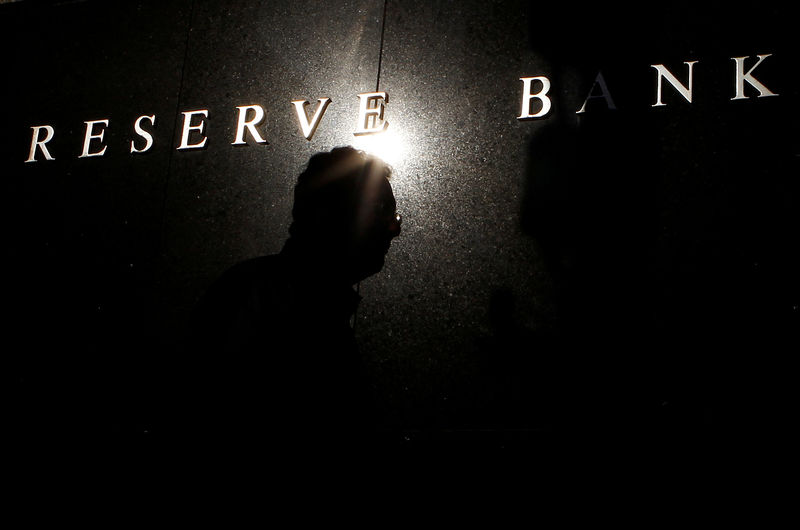By Swati Pandey and Wayne Cole
SYDNEY, May 1 (Reuters) - Australia's central bank has nudged up its forecast for inflation over the next two years but Governor Philip Lowe emphasised that wage growth would have to accelerate for that goal to be reached.
Lowe said on Tuesday that consumer inflation is expected to linger around current levels for a while before gradually picking up over the next couple of years "towards 2.5 percent."
The previous forecast was for inflation to reach 2.25 percent by mid-2020.
Lowe was speaking in Adelaide at a dinner event after the Reserve Bank of Australia's (RBA) board meeting earlier in the day, where it left interest rates at a record low 1.50 percent for a 21st successive month. is difficult to see how a continuation of 2 percent growth in wages is compatible with us achieving the midpoint of the inflation target – 2-1/2 per cent – on a sustained basis," Lowe said.
"A key element here is the pick-up in wages growth."
Core inflation, a measure closely watched by policymakers, again undershot the RBA's 2-3 percent target band last quarter. The official measure was also subdued at an annual 1.9 percent. growth of 2 percent is near the slowest on record and almost half the rate enjoyed by workers before the global financial crisis. The RBA expects a revival, albeit a gradual one.
That means interest rates are likely to remain at record lows for some time. Lowe said the board again agreed on Tuesday that there was not a strong case for a near-term move in the cash rate.
"This reflects our view that the progress in moving towards full employment and having inflation return to the middle of the target range is likely to be only gradual," Lowe added.
He repeated the RBA's central forecast is for the Australian economy to grow a bit faster than 3 percent this year and next.
But an escalation of protectionism could undermine that outlook.
"As a country that has prospered through openness, Australia has a lot resting on this not happening."
It was also concerned about a build-up of debt in China.
At home, the main concern has been sky-rocketing household debt, which is rising faster than incomes.
Lowe said things now looked "less worrying" than a while back as regulators clamped down on lending to speculative property investors.
Lowe noted a recent tightening of financial conditions for Australian banks as a result of higher cost of U.S. dollar funding but said some of that is likely to reverse over time.
One area the RBA will watch carefully is the tightening of lending standards in Australia, Lowe said, in light of a powerful judicial inquiry that revealed widespread malpractice in the industry.
